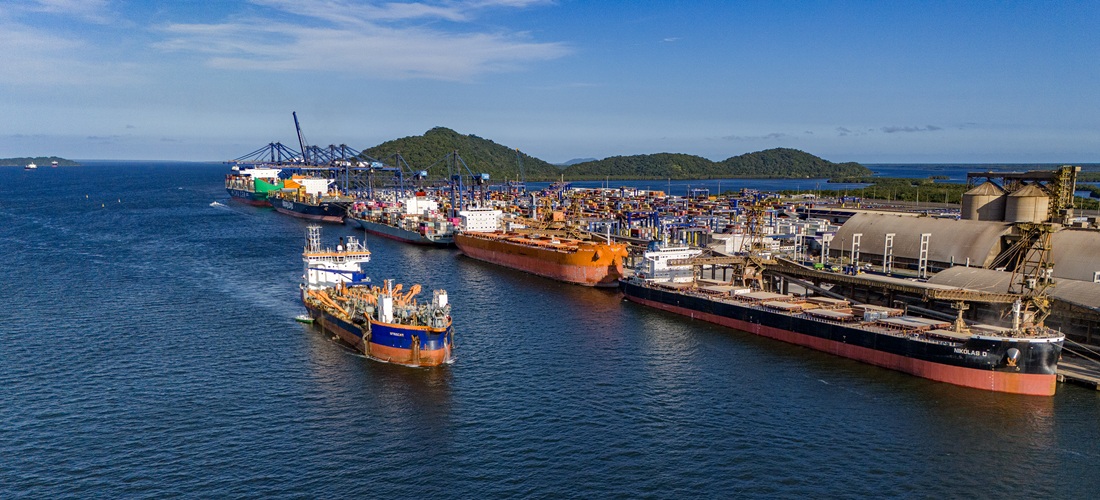
Ports in Brazil’s Paraná throughput total 57M tons between January and October 2024
Nov, 27, 2024 Posted by Gabriel MalheirosWeek 202445
From January to October, the ports of Paranaguá and Antonina handled 57.63 million tonnes of cargo, an 8% increase compared to the same period last year (53.36 million tonnes).
“We are continuously improving our infrastructure, expanding our capacity, and optimizing our management. These efforts are driving consistent productivity growth. Today, we are recognized as the best-managed ports in the country, and we work tirelessly to maintain the high-quality standards demanded by the market,” said Luiz Fernando Garcia, CEO of Portos do Paraná.
Key Commodities
The top commodity handled during this period was soybeans, with 12.85 million tonnes exported in 2024, a 4% rise compared to 12.4 million tonnes in 2023. Soybeans serve as a raw material for a wide range of industries, from food production to cosmetics and plastics.
The second-largest volume came from fertilizers, with 8.96 million tonnes imported this year—up 13% from 7.91 million tonnes in the same period last year. Paraná’s ports remain the primary gateway for fertilizer imports into Brazil, accounting for 24% of the country’s total fertilizer throughput.
Containerized cargo ranked third, with 1.31 million TEUs (twenty-foot equivalent units) processed for both imports and exports, representing a 31% surge compared to 2023 (1.0 million TEUs). Temperature-controlled containers led this growth, fueled by strong demand for frozen meat exports to the Middle East.
“We’ve also seen increased demand for containerized cargo at our container terminal, which is the most advanced in South America in terms of handling capacity. Moving over 1.3 million TEUs by the end of October is an outstanding result,” noted Gabriel Vieira, Operations Director.
Import Growth
Imports through Paraná’s ports were the highlight of the period, totaling 22.1 million tonnes from January to October 2024—up 22% from 18.16 million tonnes in 2023. Exports grew modestly by 1%, increasing from 35.2 million tonnes last year to 35.54 million tonnes this year.
-
Shipping
Sep, 17, 2024
0
CMA CGM adds another 15,000 TEU vessel to its fleet
-
Other Cargo
Jan, 10, 2022
0
Brazilian footwear exports increased 36.8% in 2021
-
Oil and Gas
Jul, 17, 2024
0
Argentina set to become part of the VLCC trading map
-
Meat
Mar, 24, 2025
0
Productive Sector Celebrates Historic Record in Meat Exports for the First Two Months of 2025

